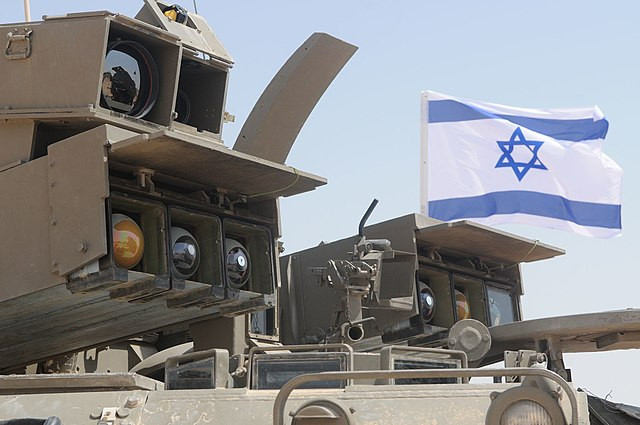Israel's missile defense systems intercepted a ballistic missile launched by Yemen's Houthi rebels on Friday, marking the latest escalation in the ongoing regional conflict. The Houthis, backed by Iran, claimed responsibility for the attack, which targeted Tel Aviv and Ashkelon, as part of their broader campaign of support for Palestinians and Hezbollah. While Israel successfully intercepted the missile before it reached its intended target, the attempted strike represents a growing threat from Yemen's Houthis in their involvement in the conflict.
The Israel Defense Forces (IDF) confirmed the interception of the surface-to-surface missile with an "Arrow" interceptor, which took place outside Israeli territory. This came after air raid sirens were triggered in central Israel, prompting residents to seek shelter. While there were no immediate reports of casualties or damage, the attack marked another effort by the Houthis to extend their reach and align themselves with Iran's regional strategy.
The Houthis, an Iran-aligned group, have become increasingly active in their military campaigns against Israeli targets since the war between Israel and Hamas began in early October. Their attacks, which have included missile and drone strikes, are framed as acts of solidarity with Palestinians in Gaza and Hezbollah in Lebanon. Houthi military spokesman Yahya Saree confirmed that the missile targeted Tel Aviv, and a drone was also launched at Ashkelon, a coastal city. Saree promised more attacks would follow until Israel ceased its operations in Gaza and Lebanon.
The Houthis have also been accused of launching numerous assaults on Israeli-linked ships in the Red Sea and the Bab al-Mandeb Strait, aiming to disrupt maritime traffic in a critical region. Their attacks have contributed to heightened tensions and concerns about broader regional instability, especially as Israel faces ongoing threats from Hezbollah and other Iran-backed groups.
In a televised statement, Saree reiterated the Houthis' commitment to continue their military operations against Israel. "We will carry out more military operations against the Israeli enemy in victory for the blood of our brothers in Palestine and Lebanon," he said, underlining their stance against what they see as Israeli aggression.
This is not the first time the Houthis have successfully targeted Israel. In July, the Houthis launched a drone strike on Tel Aviv, killing one person and injuring several others. In response, Israeli airstrikes hit Houthi military positions near Yemen's port city of Hodeidah, causing a significant fire and resulting in multiple casualties.
Iran's influence over the Houthis has long been a concern for regional stability. The Houthis have benefited from material support from Iran's Islamic Revolutionary Guard Corps (IRGC), Hezbollah in Lebanon, and other groups in Iraq. Despite a United Nations arms embargo imposed on the Houthis since 2015, the group continues to gain access to increasingly sophisticated weaponry, including ballistic and hypersonic missiles. This has raised concerns in Israel and among its allies about the potential for more destructive attacks.
French President Emmanuel Macron has been one of the leading voices in urging Israel to exercise caution in expanding its military operations into Lebanon, warning of the broader consequences. However, Israeli Prime Minister Benjamin Netanyahu has rejected calls for a cease-fire, instructing his military to continue operations with full force against Hezbollah and other militant groups.
In addition to Hezbollah's involvement, Houthi leaders have explicitly tied their military actions to events in Gaza and Lebanon. Hezbollah has lost several key figures in Israeli airstrikes, including senior commander Mohammed Srur, who was killed in a recent air raid. Srur had been instrumental in coordinating Hezbollah's operations with the Houthis, providing them with training and logistical support.




